Hiring deaf and hard of hearing employees involves planning for communication access. What are the optimal reasonable accommodation models that corporations and government agencies have used to provide effective communication with deaf and hard of hearing employees? Attend this workshop and learn from experts who have created or operated such models for their employers!
Panelists include Tracy Schramm at IBM, Bill Harkness at Boeing, Alison Levy at the U.S. Department of Transportation, and Opeoluwa Sotonwa at the Massachusetts Commission for the Deaf and Hard of Hearing.
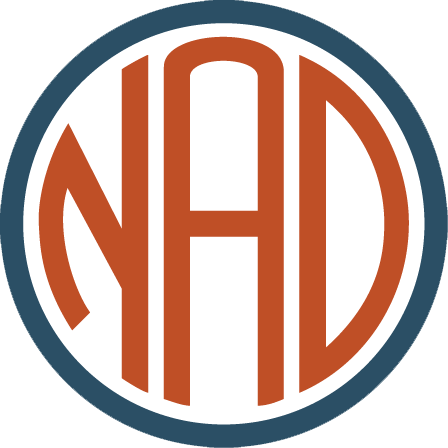

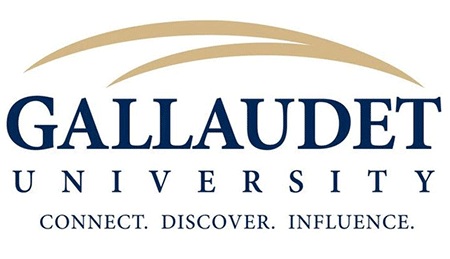
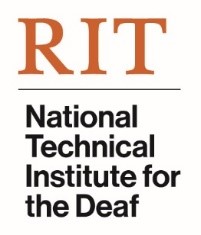
Thursday, October 7, 2021, 1-2 PM EDT
Panelists
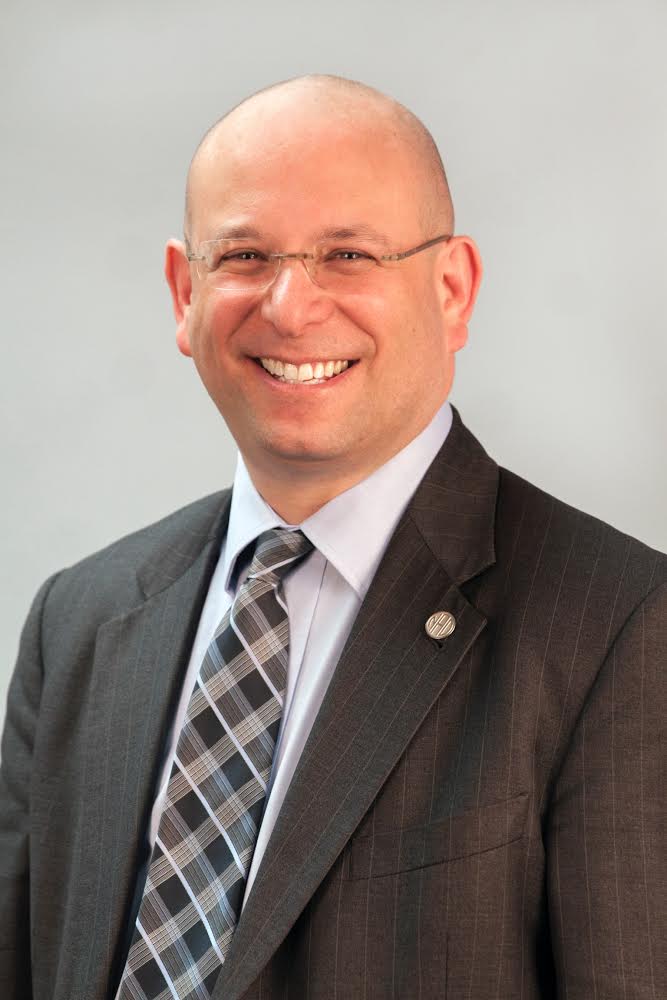 Howard started as the Chief Executive Officer of the NAD in April 2011 and also serves as an ex officio member of the NAD Board of Directors. He comes to the NAD after 22 years as a lawyer, focusing his practice on disability rights and special education law. For nine years, he was a Senior Attorney at Equip for Equality, the Protection & Advocacy entity for Illinois. The previous 10 years, he worked as an associate at Monahan & Cohen, and briefly as a legal counsel at Access Living, the center for independent living in Chicago. In 1997, he founded the Midwest Center on Law and the Deaf, and served as Board Chair until 2011. In 2010 and again in 2014, President Barack Obama appointed Howard to serve on the United States Access Board. Howard has a Bachelor of Science degree in computer engineering from the University of Arizona and a Juris Doctor degree from the Illinois Institute of Technology Chicago-Kent College of Law. Born and raised in Chicago, he is a diehard fan of Chicago sports teams. Howard also enjoys traveling the world to meet deaf people in other countries and learning their sign languages.
Howard started as the Chief Executive Officer of the NAD in April 2011 and also serves as an ex officio member of the NAD Board of Directors. He comes to the NAD after 22 years as a lawyer, focusing his practice on disability rights and special education law. For nine years, he was a Senior Attorney at Equip for Equality, the Protection & Advocacy entity for Illinois. The previous 10 years, he worked as an associate at Monahan & Cohen, and briefly as a legal counsel at Access Living, the center for independent living in Chicago. In 1997, he founded the Midwest Center on Law and the Deaf, and served as Board Chair until 2011. In 2010 and again in 2014, President Barack Obama appointed Howard to serve on the United States Access Board. Howard has a Bachelor of Science degree in computer engineering from the University of Arizona and a Juris Doctor degree from the Illinois Institute of Technology Chicago-Kent College of Law. Born and raised in Chicago, he is a diehard fan of Chicago sports teams. Howard also enjoys traveling the world to meet deaf people in other countries and learning their sign languages. 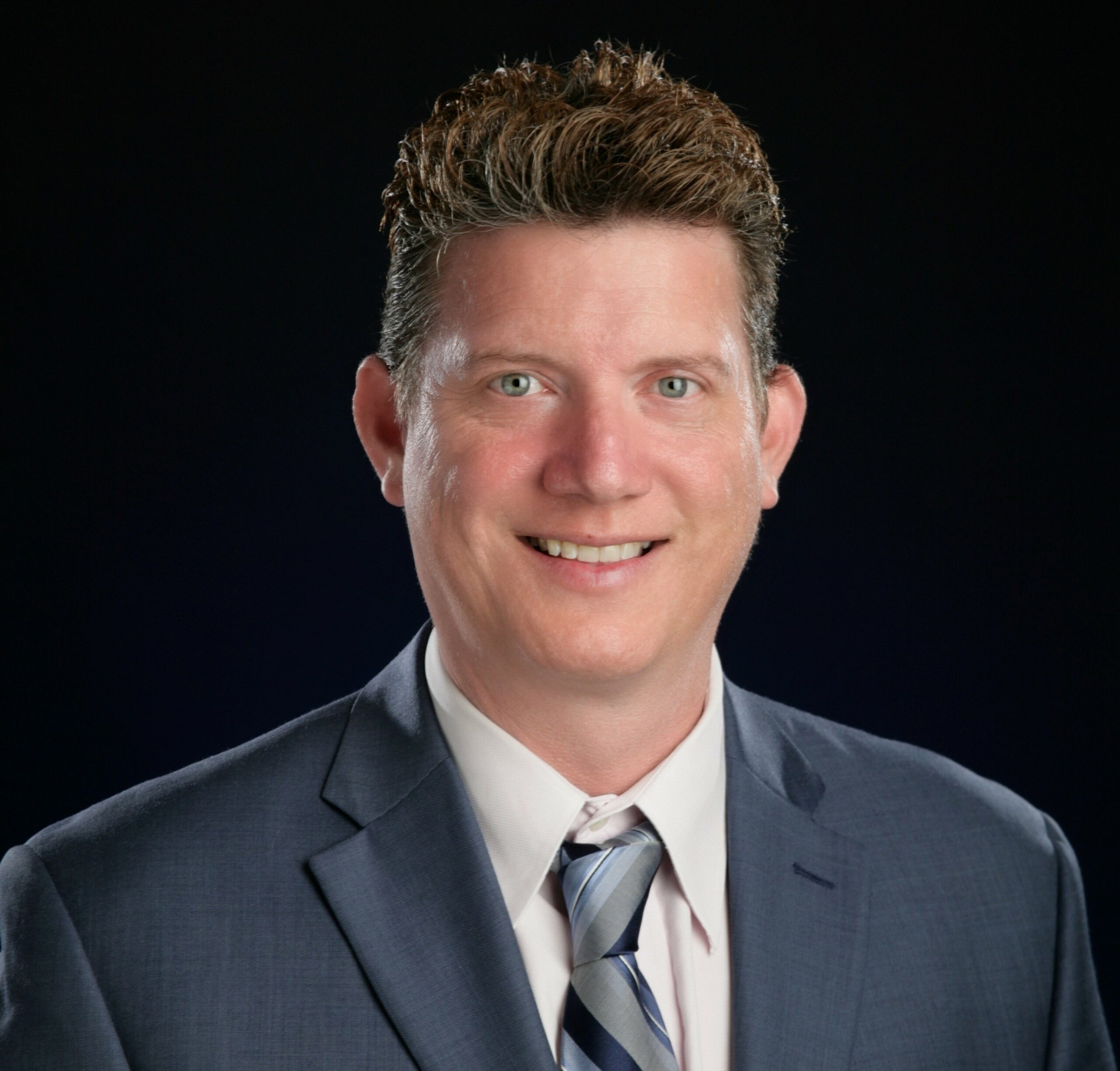 William Harkness is currently a senior engineering leader at The Boeing Company, directing a program focusing on workforce development, directly managing 60+ multidisciplinary engineers, those with background in software, civil, aerospace, structures, mechanical, and industrial engineering. He leads the best of best, world class engineering rotation program, focusing globally across 8 different business units in 6 countries. He established many of Boeing’s accessibility initiatives, such as business unit level disability focused charge lines, directly contracting sign language interpreters, creating the first enterprise wide partnership with Disability:IN, as well as being the former consultant on Disability Workforce for the Governor of Washington, just to name a few. He’s also renowned as being one of the first Boeing Deaf engineering managers ever in history. He’s still one of the biggest champion and advocate for PWD within Boeing, calling for representation at every level, inclusion in every single product and process.
William Harkness is currently a senior engineering leader at The Boeing Company, directing a program focusing on workforce development, directly managing 60+ multidisciplinary engineers, those with background in software, civil, aerospace, structures, mechanical, and industrial engineering. He leads the best of best, world class engineering rotation program, focusing globally across 8 different business units in 6 countries. He established many of Boeing’s accessibility initiatives, such as business unit level disability focused charge lines, directly contracting sign language interpreters, creating the first enterprise wide partnership with Disability:IN, as well as being the former consultant on Disability Workforce for the Governor of Washington, just to name a few. He’s also renowned as being one of the first Boeing Deaf engineering managers ever in history. He’s still one of the biggest champion and advocate for PWD within Boeing, calling for representation at every level, inclusion in every single product and process. 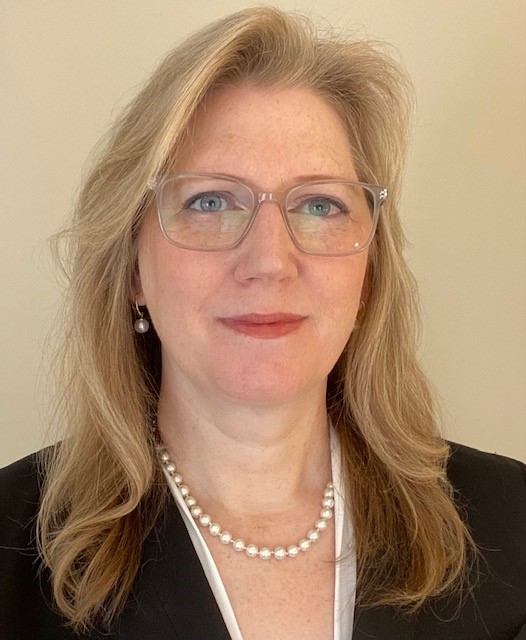 Alison Levy is the manager of the U.S. Department of Transportation’s Disability Resource Center (DRC). The DRC is a centrally funded office that supports internal supervisors and employees in creating an accessible and inclusive workplace through recruitment, outreach, education, and reasonable accommodations.
Previously, Alison served at the U.S. Department of Agriculture (USDA), providing leadership over the recruitment, hiring, advancement and retention of individuals with disabilities, including reasonable accommodations. She developed and implemented policies, procedures, strategic plans, and facilitated programs through a diverse team of more than 50 contacts across USDA’s 34 mission areas, agencies, and staff offices. Her efforts with a team of diversity and inclusion colleagues yielded USDA’s six-level rise in the Federal Employee Viewpoint Survey to #2 for Large Federal Agencies in Diversity Support.
Alison was one of the founding leaders of the Federal Disability Workforce Consortium (FDWC), a volunteer, interagency organization that grew from 20 to more than 900 Federal points of contact with monthly webinars, meetings, and collaborations with the Office of Personnel Management, Equal Employment Opportunity Commission, and the Department of Labor’s Office of Disability Employment Policy.
As a person with disabilities, and with over 30 years of experience in the disability profession, Alison has worked toward improving workplace attitudes and in providing equal opportunity in the post-secondary, public, and private sectors. Alison earned her B.A. in Public Communication from The American University, and her Masters in Special Education from Johns Hopkins University. She is fluent in American Sign Language.
Alison Levy is the manager of the U.S. Department of Transportation’s Disability Resource Center (DRC). The DRC is a centrally funded office that supports internal supervisors and employees in creating an accessible and inclusive workplace through recruitment, outreach, education, and reasonable accommodations.
Previously, Alison served at the U.S. Department of Agriculture (USDA), providing leadership over the recruitment, hiring, advancement and retention of individuals with disabilities, including reasonable accommodations. She developed and implemented policies, procedures, strategic plans, and facilitated programs through a diverse team of more than 50 contacts across USDA’s 34 mission areas, agencies, and staff offices. Her efforts with a team of diversity and inclusion colleagues yielded USDA’s six-level rise in the Federal Employee Viewpoint Survey to #2 for Large Federal Agencies in Diversity Support.
Alison was one of the founding leaders of the Federal Disability Workforce Consortium (FDWC), a volunteer, interagency organization that grew from 20 to more than 900 Federal points of contact with monthly webinars, meetings, and collaborations with the Office of Personnel Management, Equal Employment Opportunity Commission, and the Department of Labor’s Office of Disability Employment Policy.
As a person with disabilities, and with over 30 years of experience in the disability profession, Alison has worked toward improving workplace attitudes and in providing equal opportunity in the post-secondary, public, and private sectors. Alison earned her B.A. in Public Communication from The American University, and her Masters in Special Education from Johns Hopkins University. She is fluent in American Sign Language. 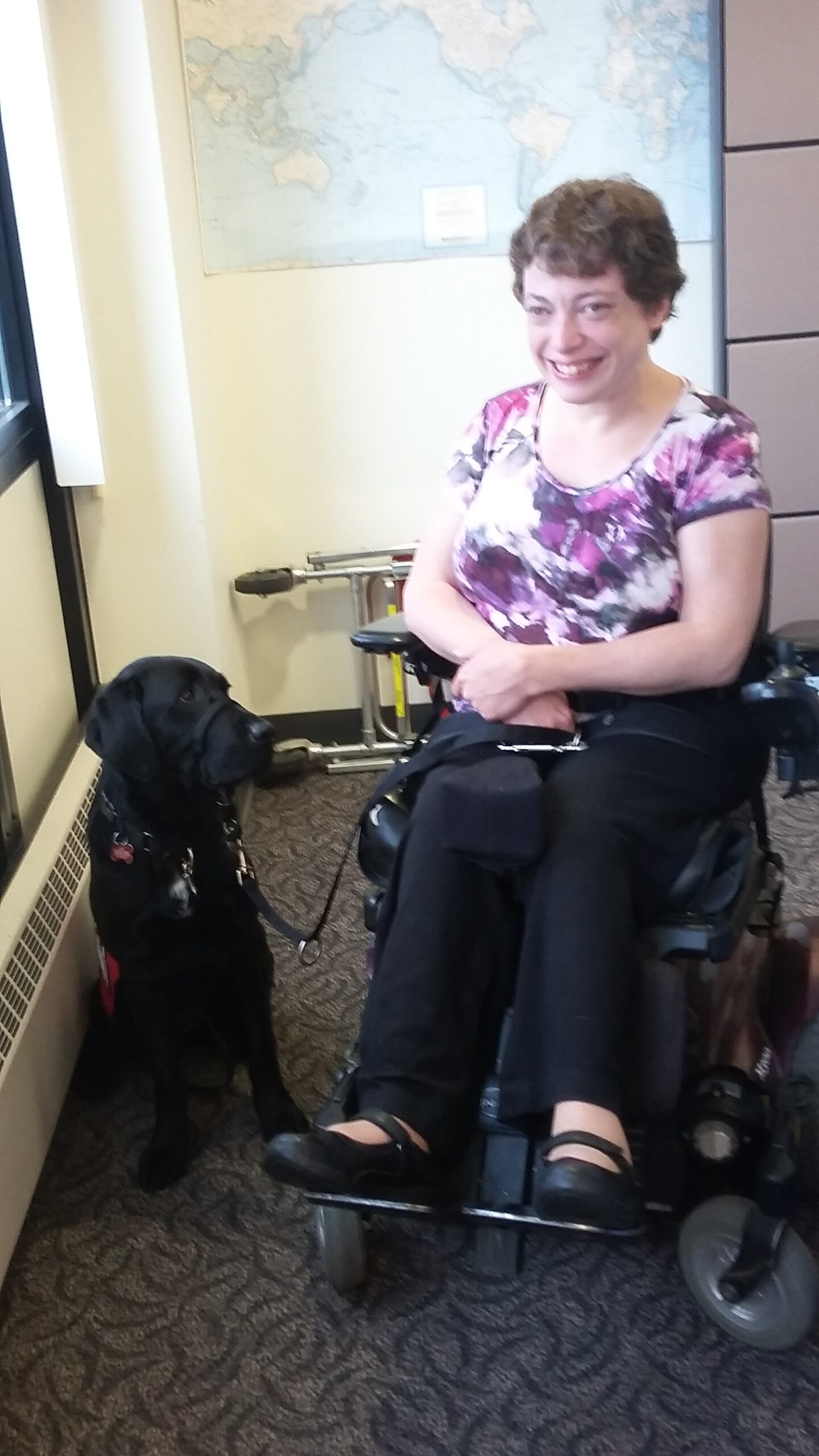 Tracy Schramm is the Global Persons with Diverse Abilities Business Resource Group Leader for IBM as well as the leader for the local IBM Rochester Persons with Diverse Abilities BRG leader. In addition, she is a manager in the IBM i Global Support Center. Prior to her current role, she was a Resolution Manager in the Power Systems Project Office handling complaints from clients. While at IBM, she has had temporary assignments in development and an international assignment at IBM Mainz in Germany. Tracy holds a Bachelor of Science in Computer Science and a Bachelor of Arts in Spanish from Southwest Minnesota State University. In addition, she holds a Masters of Information Systems and Management from the University of Phoenix.
Tracy Schramm is the Global Persons with Diverse Abilities Business Resource Group Leader for IBM as well as the leader for the local IBM Rochester Persons with Diverse Abilities BRG leader. In addition, she is a manager in the IBM i Global Support Center. Prior to her current role, she was a Resolution Manager in the Power Systems Project Office handling complaints from clients. While at IBM, she has had temporary assignments in development and an international assignment at IBM Mainz in Germany. Tracy holds a Bachelor of Science in Computer Science and a Bachelor of Arts in Spanish from Southwest Minnesota State University. In addition, she holds a Masters of Information Systems and Management from the University of Phoenix. 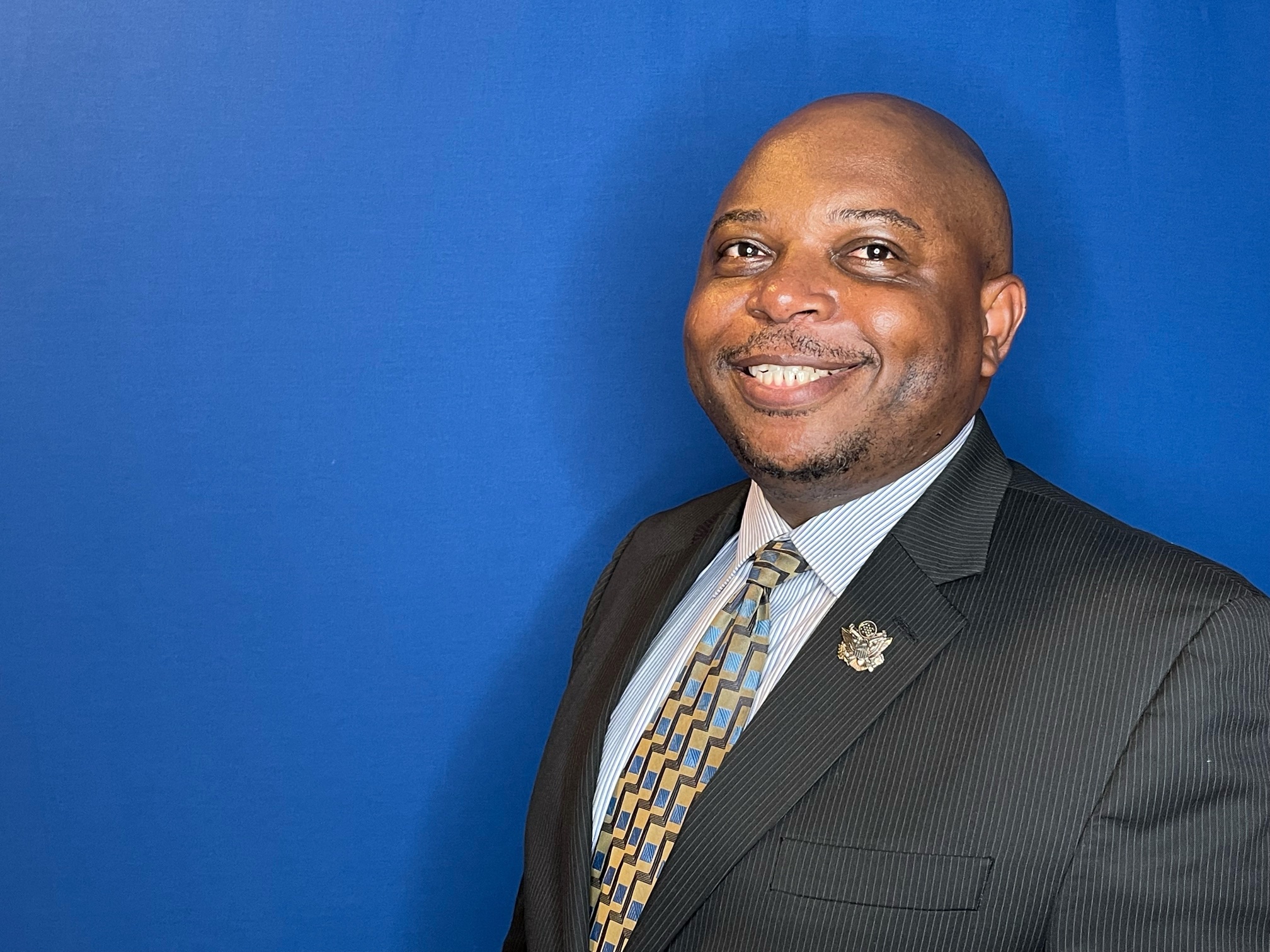 Dr. Opeoluwa Sotonwa is the Commissioner for Massachusetts Commission for the Deaf and Hard of Hearing. Before he was appointed by Governor Baker in February 2021, he previously served as the Executive Director of Missouri Commission for the Deaf and Hard of Hearing. An accomplished international thought leader; Dr. Sotonwa has been involved with disability rights issues since becoming a lawyer in Nigeria – He was instrumental in the drafting and passage of Nigerian disability rights law. In Missouri, he was involved in drafting and passage of over twenty pieces of legislation – some of which have established hearing aids distribution program for Low-Income, establishment of a statewide support service program for Deafblind to live independent life, Commercial Driver License law that paved the way for Deaf people to be obtain CDL, 911 service legislation that repositioned Missouri 911 Service for Next-Generation 911 service, and overhauling of Missouri state Interpreters Certification System, statewide data of Deaf and Hard of Hearing population in Missouri, just to mention among others. He held two Missouri gubernatorial appointments as a board member of the 911 Service Board and the Governor’s Council on Disability. He was a member of the Relay Missouri Advisory Committee, Missouri Department of Mental Health Deaf Advisory Council, and Missouri Deaf-Blind Technical Assistance Project Advisory Committee. Dr. Sotonwa has played key roles within and outside Deaf communities in the United States and African countries. He was formerly the Vice President of National Black Deaf Advocates (NBDA), the nation’s foremost civil rights organization serving Black Deaf community. He also served as the Chair of NBDA Board of Director. Dr. Sotonwa is currently a board member of the Telecommunication for the Deaf and Hard of Hearing Inc. (TDI) as well as several think-tank organizations that focus on disability rights advocacy around the world. He recently served as the technical lead member of a consortium of African disability rights law experts that drafted the Nigerian Disability Rights Law modules funded by the Open Society Initiative for West Africa (OSIWA). Dr. Sotonwa is a member of the National Association of the Deaf (NAD), Hearing Loss Association of America (HLAA), Association of Late Deafened Adults (ALDA) and, Deaf and Hard of Hearing Bar Association. Dr. Sotonwa holds an LL.M. Degree (Master of Laws) from Howard University School of Law in Washington, D.C. He also holds an LP.D. Degree (Doctor of Law and Policy) from Northeastern University in Boston Massachusetts, where he conducted a doctoral research entitled “The Lived Experiences of Deaf Suspects during Police Interrogations: An Interpretative Phenomenological Analysis”. A consummate advocate; Dr. Sotonwa brings a lot of passion and a community-centered leadership approach to MCDHH. A recipient of numerous awards; He was most recently honored as the recipient of 2020 Judge Arnold Krekel Trailblazer Award for Human Rights.
Dr. Opeoluwa Sotonwa is the Commissioner for Massachusetts Commission for the Deaf and Hard of Hearing. Before he was appointed by Governor Baker in February 2021, he previously served as the Executive Director of Missouri Commission for the Deaf and Hard of Hearing. An accomplished international thought leader; Dr. Sotonwa has been involved with disability rights issues since becoming a lawyer in Nigeria – He was instrumental in the drafting and passage of Nigerian disability rights law. In Missouri, he was involved in drafting and passage of over twenty pieces of legislation – some of which have established hearing aids distribution program for Low-Income, establishment of a statewide support service program for Deafblind to live independent life, Commercial Driver License law that paved the way for Deaf people to be obtain CDL, 911 service legislation that repositioned Missouri 911 Service for Next-Generation 911 service, and overhauling of Missouri state Interpreters Certification System, statewide data of Deaf and Hard of Hearing population in Missouri, just to mention among others. He held two Missouri gubernatorial appointments as a board member of the 911 Service Board and the Governor’s Council on Disability. He was a member of the Relay Missouri Advisory Committee, Missouri Department of Mental Health Deaf Advisory Council, and Missouri Deaf-Blind Technical Assistance Project Advisory Committee. Dr. Sotonwa has played key roles within and outside Deaf communities in the United States and African countries. He was formerly the Vice President of National Black Deaf Advocates (NBDA), the nation’s foremost civil rights organization serving Black Deaf community. He also served as the Chair of NBDA Board of Director. Dr. Sotonwa is currently a board member of the Telecommunication for the Deaf and Hard of Hearing Inc. (TDI) as well as several think-tank organizations that focus on disability rights advocacy around the world. He recently served as the technical lead member of a consortium of African disability rights law experts that drafted the Nigerian Disability Rights Law modules funded by the Open Society Initiative for West Africa (OSIWA). Dr. Sotonwa is a member of the National Association of the Deaf (NAD), Hearing Loss Association of America (HLAA), Association of Late Deafened Adults (ALDA) and, Deaf and Hard of Hearing Bar Association. Dr. Sotonwa holds an LL.M. Degree (Master of Laws) from Howard University School of Law in Washington, D.C. He also holds an LP.D. Degree (Doctor of Law and Policy) from Northeastern University in Boston Massachusetts, where he conducted a doctoral research entitled “The Lived Experiences of Deaf Suspects during Police Interrogations: An Interpretative Phenomenological Analysis”. A consummate advocate; Dr. Sotonwa brings a lot of passion and a community-centered leadership approach to MCDHH. A recipient of numerous awards; He was most recently honored as the recipient of 2020 Judge Arnold Krekel Trailblazer Award for Human Rights. Webinar Policies
We value access and strive to make our meetings accessible and welcoming to all participants. The NAD is committed to access and all of the presenters have been provided with guidance on making their presentations accessible. We also provide accommodations to meet individual needs during the webinars. If you have a question about an auxiliary aid or service you requested on your registration, please email [email protected].
All webinars will be in American Sign Language (ASL) unless specified.
- Our webinars are intended to be a safe, secure, and learning environment for all participants with the purpose of encouraging productive discussions
- All participants are expected to conduct themselves in a professional and courteous manner, and to show respect to everyone at all times without any form of harassment.
- The NAD does not tolerate harassment of any kind, including but not limited to: race, national origin, age, gender, gender identity and expression, sexual orientation, disability, physical appearance, body size, religion, or political affiliation. The NAD reserves the right to expel any person who engages in violations of this conduct policy, and also reserves the right to ban such person from future events. No refunds will be given to any person who has been expelled from the conference for violating this conduct policy.
- Anyone can report harassment or inappropriate conduct. If any person’s behavior has made you uncomfortable, or if you witness inappropriate conduct towards someone else, please immediately contact any staff or security affiliated with the NAD.
By attending a webinar, you agree and understand that you are giving permission to the National Association of the Deaf (NAD) to obtain and use screenshots, audio, and video recordings at the webinar, without restriction or limitation for such use. You also agree and understand that you will not be compensated for the use of such photographs, or audio, or video recordings. You further agree and understand that if you do not want to be photographed or recorded in audio or video, you will notify [email protected] before the webinar.
NAD webinars may be free (with a charge only for CEUs) or might have a cost for registration. Any payments made towards registering for a webinar and/or the CEUs are non-refundable except for a medical emergency or a death in the family (written documentation is required).
